From Ambassador(Where does plastic waste go?)
2025/1/23
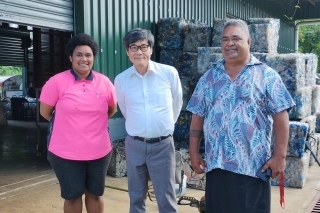
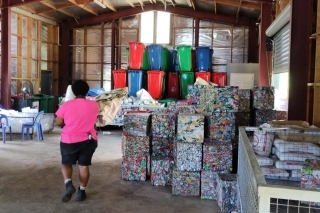
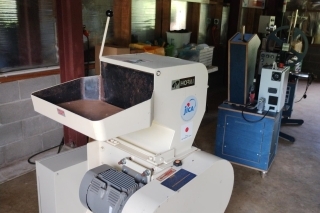
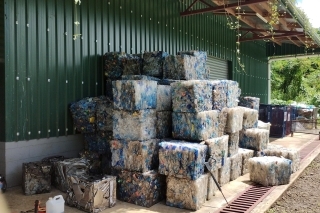
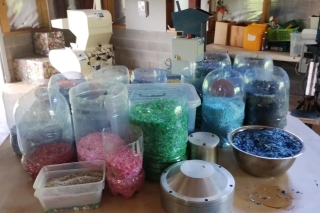
Where does plastic waste go
On the afternoon of January 21, I paid a short visit to Mr. Silafau Ioane, President of the Samoa Recycling and Waste Management Association and had a chance to observe the recycling site for recyclable waste.
In the old days of Samoa, there were no plastic bottles, aluminum cans, or even glass bottles. However, as urbanization progresses, these things that were not used in the villages of Samoa before and those materials that do not decompose naturally, are now often thrown away as garbage. I think that reducing the use of such environmentally harmful materials as much as possible and collecting the garbage that has been generated is an important issue in preserving the rich natural environment of this island.
The management of recyclable waste, including plastic, is an area that Japan has struggled with, and we have been using that experience to provide technical cooperation in various countries.
During that visit, I could observe the equipment (crushers, extruder, etc.) introduced through JICA's technical cooperation at the site.
Plastic wastes such as PET bottles are collected voluntarily. People put them in collection boxes (cages) installed at supermarkets and schools. No payment is paid for this. Also, such collection boxes are only installed in urban areas. According to Silafau, the recovery rate is about 10-15%.
After collection, the materials are sorted and washed by hand by three women.
After sorting, the waste is compressed and placed in containers for export to Australia. Yes, in a small island nation like Samoa, recycling cannot be completed within the country.
Large plastic wastes that are not suitable for wrapping are crushed and bagged as chips.
The amount exported is about one or two containers per year.
The shipping costs are subsidized are free for now.
Incidentally, a local beer company collects and give refunds for used glass bottles and reuse them.
On the other hand, there is no system in place for local companies to collect containers for aluminum cans and PET bottles. Some discarded aluminum cans are collected here, compressed and re-exported, but the rest are sent to landfills with general garbage.
Considering the environment, it may be better to drink beer in a bottle.
On the afternoon of January 21, I paid a short visit to Mr. Silafau Ioane, President of the Samoa Recycling and Waste Management Association and had a chance to observe the recycling site for recyclable waste.
In the old days of Samoa, there were no plastic bottles, aluminum cans, or even glass bottles. However, as urbanization progresses, these things that were not used in the villages of Samoa before and those materials that do not decompose naturally, are now often thrown away as garbage. I think that reducing the use of such environmentally harmful materials as much as possible and collecting the garbage that has been generated is an important issue in preserving the rich natural environment of this island.
The management of recyclable waste, including plastic, is an area that Japan has struggled with, and we have been using that experience to provide technical cooperation in various countries.
During that visit, I could observe the equipment (crushers, extruder, etc.) introduced through JICA's technical cooperation at the site.
Plastic wastes such as PET bottles are collected voluntarily. People put them in collection boxes (cages) installed at supermarkets and schools. No payment is paid for this. Also, such collection boxes are only installed in urban areas. According to Silafau, the recovery rate is about 10-15%.
After collection, the materials are sorted and washed by hand by three women.
After sorting, the waste is compressed and placed in containers for export to Australia. Yes, in a small island nation like Samoa, recycling cannot be completed within the country.
Large plastic wastes that are not suitable for wrapping are crushed and bagged as chips.
The amount exported is about one or two containers per year.
The shipping costs are subsidized are free for now.
Incidentally, a local beer company collects and give refunds for used glass bottles and reuse them.
On the other hand, there is no system in place for local companies to collect containers for aluminum cans and PET bottles. Some discarded aluminum cans are collected here, compressed and re-exported, but the rest are sent to landfills with general garbage.
Considering the environment, it may be better to drink beer in a bottle.
